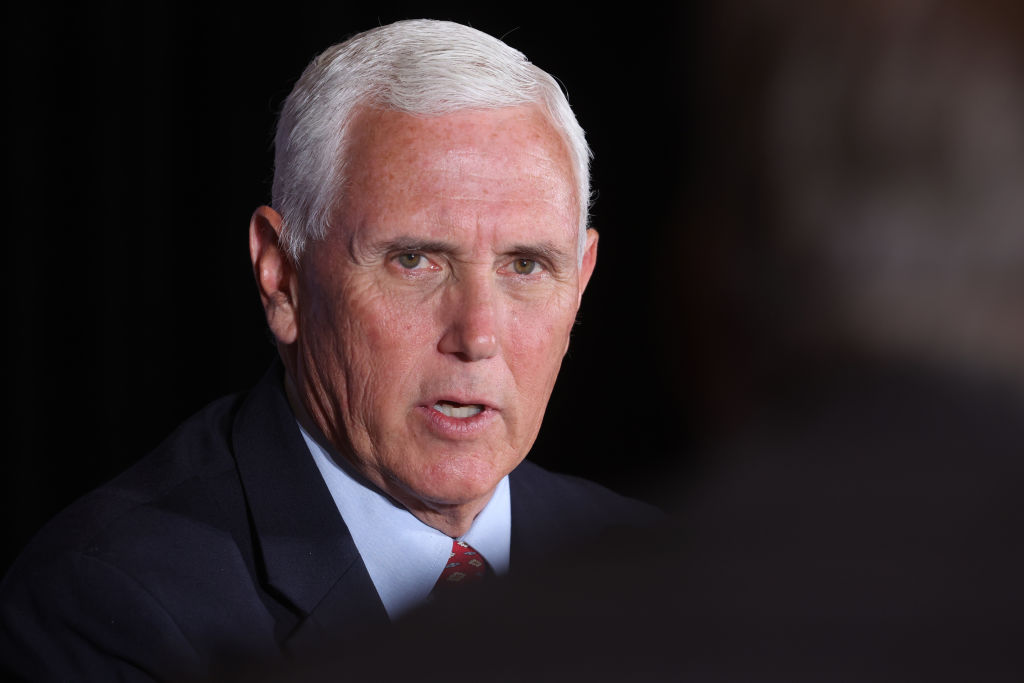
The National Archives has asked former U.S. presidents and vice presidents to recheck their personal records for any classified documents following the news that President Joe Biden and former Vice President Mike Pence had such documents in their possession, two people familiar with the matter said Thursday.
The Archives sent a letter Thursday to representatives of former presidents and vice presidents extending back to Ronald Reagan to ensure compliance with the Presidential Records Act, according to the two people, who spoke on condition of anonymity because they were not authorized to speak about investigations. The act states that any records created or received by the president are the property of the U.S. government and will be managed by the archives at the end of the administration.
The Archives sent the letter to representatives of former Presidents Donald Trump, Barack Obama, George W. Bush, Bill Clinton, George H.W. Bush and Ronald Reagan, and former Vice Presidents Pence, Biden, Dick Cheney, Al Gore and Dan Quayle.
Responsibility to comply with the Presidential Records Act "does not diminish after the end of an administration,” the Archives wrote in the letter. “Therefore, we request that you conduct an assessment of any materials held outside of (the Archives) that relate to the administration for which you serve as a designated representative under the PRA, to determine whether bodies of materials previously assumed to be personal in nature might inadvertently contain Presidential or Vice Presidential records subject to the PRA, whether classified or unclassified.”
Get top local stories in Southern California delivered to you every morning. >Sign up for NBC LA's News Headlines newsletter.
Spokespeople for former Presidents Trump, Obama, Clinton and former Vice Presidents Pence, Dick Cheney, Al Gore and Dan Quayle did not immediately respond to requests for comment.
Freddy Ford, chief of staff to former president George W. Bush responded to the Archives, saying, “Thank you for your note. We understand its purpose and remain confident that no such materials are in our possession.”
Biden’s lawyers came across classified documents from his time as vice president in a locked cabinet as they were packing up an office he no longer uses in November. Since then, subsequent searches by the FBI and Biden’s lawyers have turned up more documents. Former Vice President Pence, too, this week, discovered documents and turned them in after saying previously he did not believe he had any.
The White House did not immediately respond to a request for comment but the searches by Biden’s attorneys and the FBI appear to fulfill the Archives’ request.
The Archives had no comment.
Handling of classified documents has been a problem off and on for decades, from presidents to Cabinet members and staff across multiple administrations stretching as far back as Jimmy Carter. But the issue has taken on greater significance since former President Donald Trump willfully retained classified material at his Florida estate, prompting the unprecedented FBI seizure of thousands of pages of records last year.
Attorney General Merrick Garland appointed a special counsel to investigate Trump’s handling of the documents, and also Biden’s.
It turns out that officials from all levels of government discover they are in possession of classified material and turn it over to authorities at least several times a year, according to another person familiar with the matter who spoke on the condition of anonymity due to the sensitive nature of classified documents.
Current and former officials involved in the handling of classified information say that while there are clear policies for how such information should be reviewed and stored, those policies are sometimes pushed aside at the highest levels. Teams of national security officials, secretaries and military aides who share responsibility for keeping top-level executives informed — and the executives themselves — may bend the rules for convenience, expediency or sometimes simple carelessness.
While much of the attention has been on classified information, the Presidential Records Act actually requires that, from the Reagan administration onward, all records must be transferred to the Archives regardless of classification.
It’s against federal law to have classified documents at an unauthorized location, but it's only a crime if it was done intentionally.
Speaking Thursday at an unrelated news conference, FBI Director Christopher Wray said that though he could not discuss any specific ongoing investigation, “We have had for quite a number of years any number of mishandling investigations. That is unfortunately a regular part of our counterintelligence division’s and counterintelligence program’s work.”
He said there was a need for people to be conscious of laws and rules governing the handling of classified information. “Those rules,” he said, “are there for a reason.”
Read More
___
Associated Press writers Eric Tucker and Farnoush Amiri contributed.



